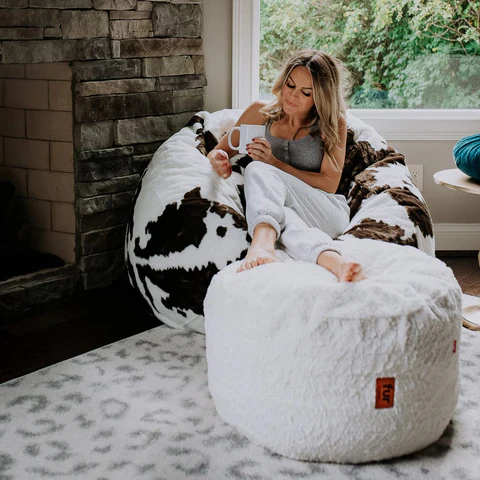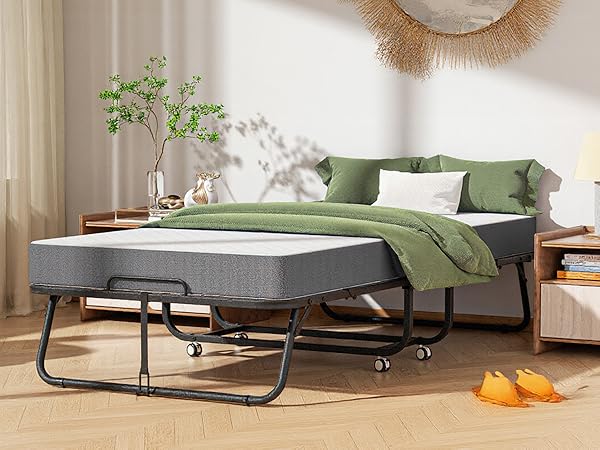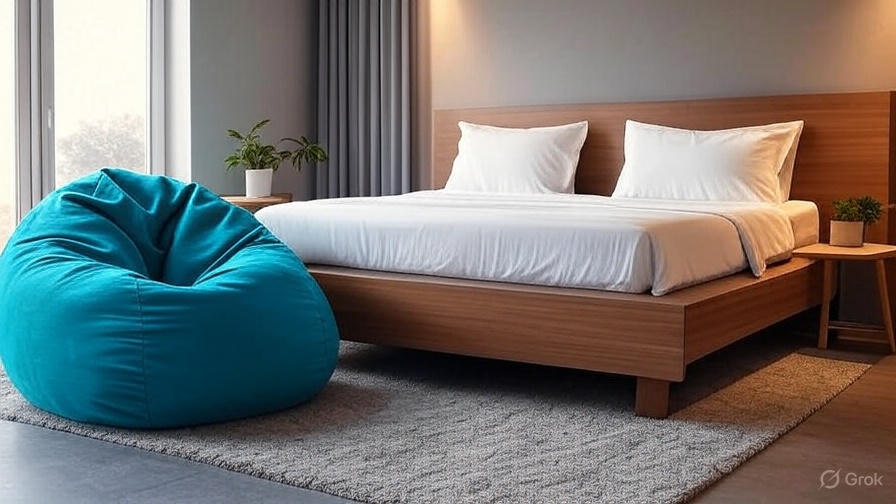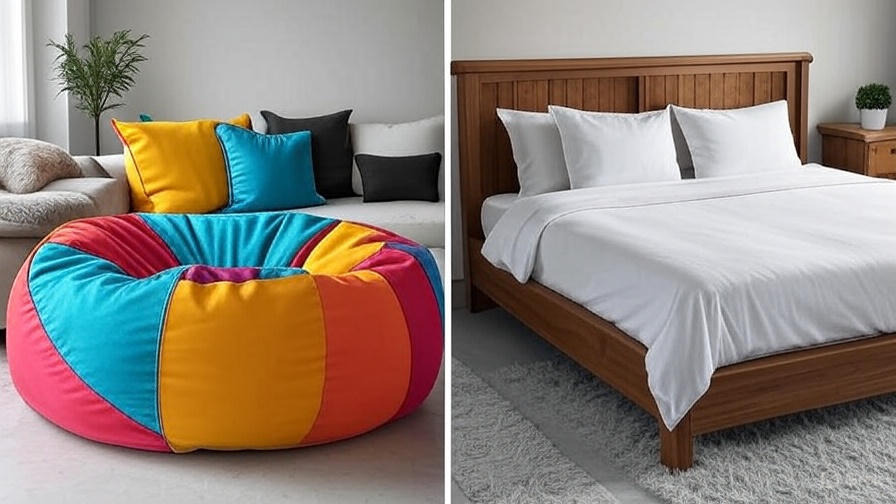In 2025, choosing the right guest bedding is essential, and the debate bean bag beds vs traditional guest beds highlights versatility versus comfort. With home hosting on the rise—searches for “guest bed options” up 35%—homeowners seek practical solutions. This comparison of bean bag beds vs traditional guest beds in 2025 explores pros, cons, and tips to help you decide. Bean bag beds, like CordaRoy’s, offer space-saving convenience, while traditional beds provide reliable support. Whether for occasional guests or daily use, we’ll break down features. Let’s compare bean bag beds vs traditional guest beds 2025 to find the better fit for your home.
Overview of Bean Bag Beds
Bean bag beds, or convertible bean bags, are foam-filled seats that unzip into full beds. Originating from innovative designs like CordaRoy’s in 1998, they’re built with CertiPUR-certified foam that never flattens. In 2025, they’re popular for multi-purpose rooms, with sales up 40% per retail data. Benefits include portability (fold to save space), comfort for lounging or sleeping, and durability with lifetime guarantees. They’re kid and pet-friendly, with covers resisting stains. Challenges: Heavier (30-50 lbs) and less formal. Ideal for apartments or families needing quick setups. CordaRoy’s Queen model exemplifies this, transforming in seconds for guests.

Overview of Traditional Guest Beds
Traditional guest beds include foldable cots, air mattresses, or rollaway frames with springs. Popular since the mid-20th century, they offer standard mattress support for overnight stays. In 2025, inflatable options like Intex (4.5/5) are common for easy storage. Benefits: Firm support for back health (reducing pain by 15%, per Sleep Foundation), affordable ($100-300), and formal appearance. They’re stable for all ages. Drawbacks: Bulky storage, setup time (5-10 minutes), and air leaks in inflatables. Traditional guest bed tips 2025: Choose memory foam tops for comfort. They suit homes with dedicated guest rooms.

Head-to-Head Comparison
Compare key aspects. Comfort: Bean bag beds (4.8/5) mold to your body; traditional (4.6/5) provide firm support. Space: Bean bags fold compactly; traditional need storage rooms. Cost: Bean bags $200-400; traditional $100-300. Setup: Bean bags 1 minute; traditional 5-10. Durability: Bean bags lifetime foam; traditional 5-10 years. Portability: Bean bags lighter; traditional bulkier. Table:
| Aspect | Bean Bag Beds | Traditional Guest Beds |
|---|---|---|
| Comfort | Molding, cozy | Firm, supportive |
| Space | Compact fold | Requires room |
| Cost | $200-400 | $100-300 |
| Setup | Quick (1 min) | Moderate (5-10 min) |
| Durability | Lifetime foam | 5-10 years |
| Portability | Easy carry | Less mobile |
From Houzz, bean bags win for versatility; traditional for stability.
Which is Better for Beginners in 2025?
For beginners or occasional hosts, bean bag beds excel in ease and fun. They’re forgiving for setup errors and multi-use. Traditional beds suit frequent guests needing firm sleep. Hybrid tip: Use bean bag for casual, traditional for formal. Guest bedding options 2025 favor bean bags for space-saving, per Consumer Reports. Consider your needs—bean bags for apartments, traditional for large homes.

Conclusion
In bean bag beds vs traditional guest beds 2025, bean bags offer versatility, traditional provide reliability. Choose based on space and use. CordaRoy’s models shine for innovation. Visit our site for more comparisons.

